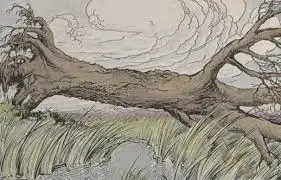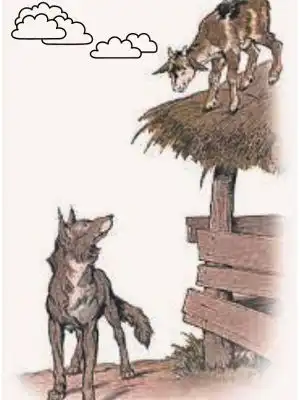The Oak and the Reeds
A Giant Oak stood near a brook in which grew some slender Reeds. When the wind blew, the great Oak stood proudly upright with its hundred arms uplifted to the sky. But the Reeds bowed low in the wind and sang a sad and mournful song.

“You have reason to complain,” said the Oak. “The slightest breeze that ruffles the surface of the water makes you bow your heads, while I, the mighty Oak, stand upright and firm before the howling tempest.”
“Do not worry about us,” replied the Reeds. “The winds do not harm us. We bow before them and so we do not break.
You, in all your pride and strength, have so far resisted their blows. But the end is coming.”
As the Reeds spoke a great hurricane rushed out of the north. The Oak stood proudly and fought against the storm, while the yielding Reeds bowed low.
The wind redoubled in fury, and all at once the great tree fell, torn up by the roots, and lay among the pitying Reeds.
Moral of the story
It’s okay to adapt: Sometimes, it’s better to go with the flow rather than stubbornly resist.
Flexibility is important: Being flexible and adapting to situations can prevent unnecessary harm.
Questions for the children
- Why do you think the Oak refused to bow to the wind?
- Can you think of a time when being flexible and adapting to a situation was important?
Post Note: This story is based on Aesop’s fable, written around 600 BC. In this retelling, we’ve used simpler words to make the story easier for young readers to understand.





